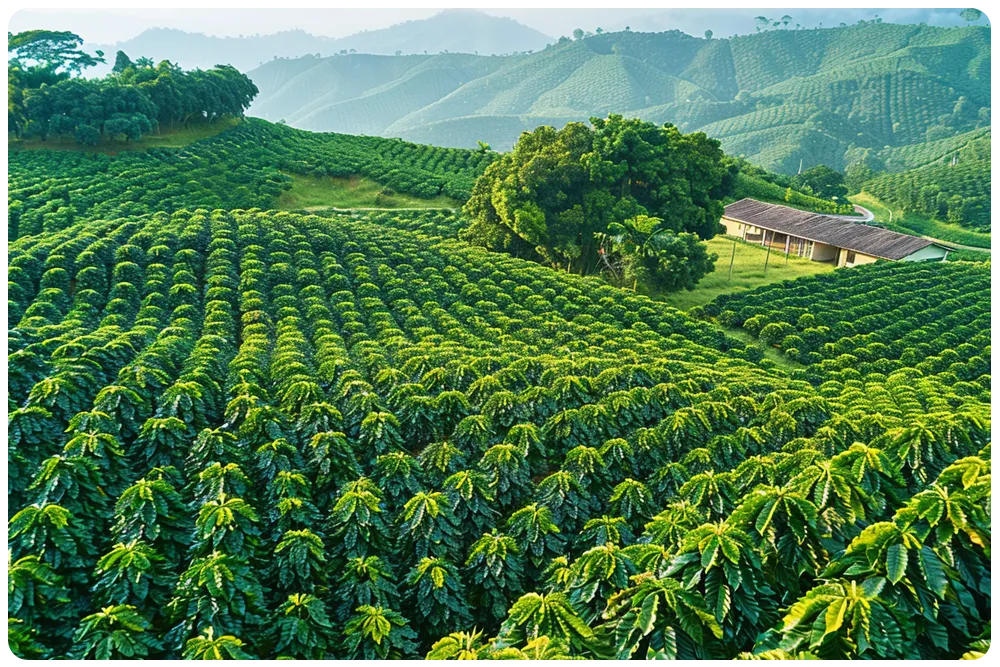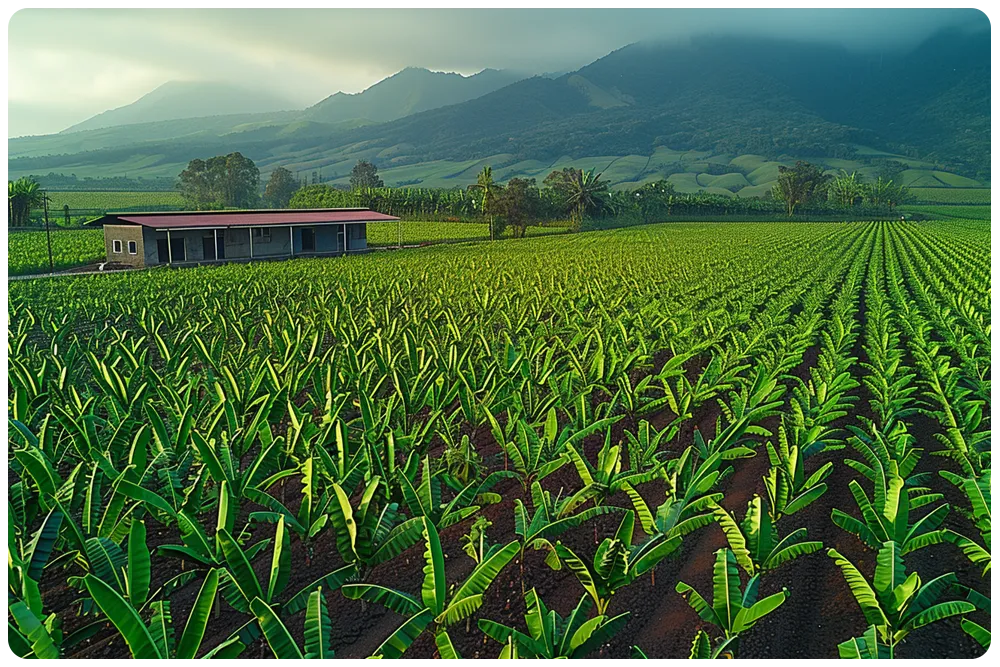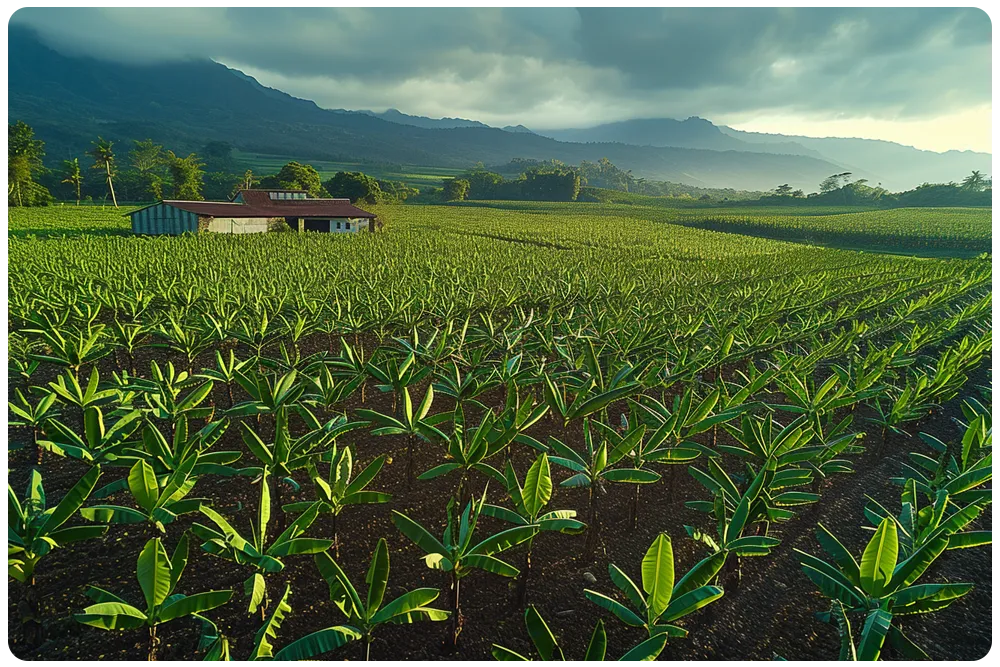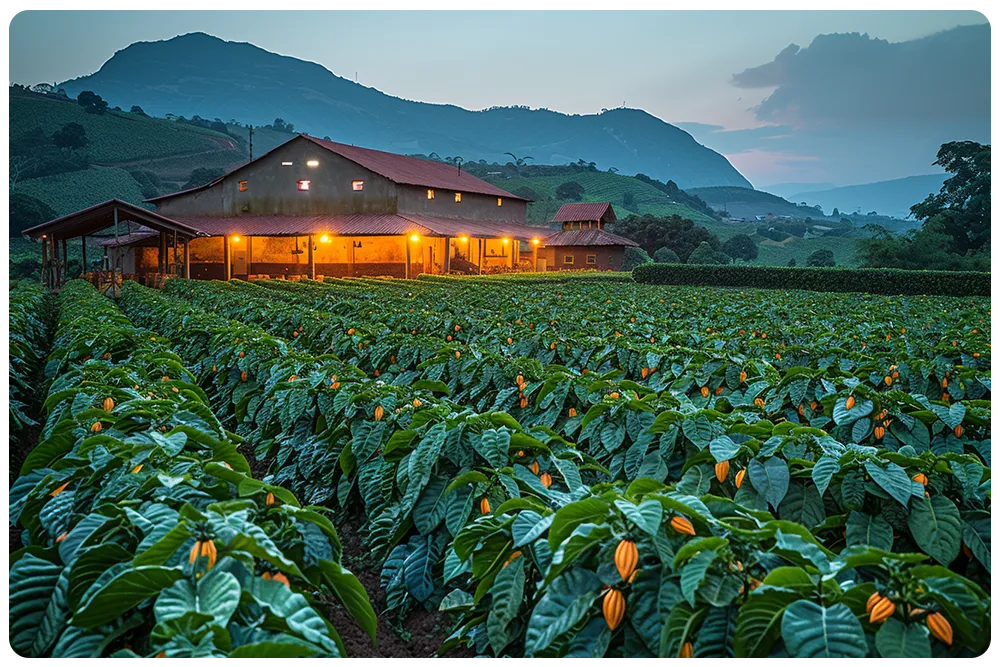Explore the robust role of drone technology in eco-friendly farming. Understand how drones optimally manage crops, enhancing yield strength and minimizing crop illnesses.
Welcome to Drone Farm
We offer a comprehensive range of agricultural drone services. With years of experience, we’ve harnessed our expertise to deliver high-quality services to our clients. Our team provides full support at every stage. Choose us for top-tier Drone Farming experiences!

Contents
- 1. How do drones benefit eco-friendly farming?
- 2. Drones reducing chemical use in farming
- 3. Monitoring crop health with drones
- 4. Can drones lower farming carbon footprint?
- 5. Implementation of drones in sustainable agriculture

1. How do drones benefit eco-friendly farming?
Benefit of Drones in Eco-friendly Farming
Utilizing drone technology in farming and agriculture helps to propel the sector into a more sustainable era. With an agricultural drone, farmers can reinvigorate customary farming methods with a greener, more efficient approach. Here’s how:1. Precision Farming:
- A singular drone can fly over vast fields, accurately mapping out the terrain and gathering crucial data. This information helps farmers make strategic decisions about the optimal areas to plant crops, minimizing the use of resources.
2. Resource Efficiency:
- By assisting in targeted crop spraying, a drone can deliver vital nutrients and pesticides directly to plants. This direct approach cuts down on resource waste and reduces unnecessary exposure of the environment to harmful substances that are typically used in traditional farming practices.
3. Crop Health Monitoring:
- Equipped with advanced sensors, a drone can detect early signs of disease or illness in crops. This instant and accurate identification of trouble areas in the field can allow for immediate action, dramatically reducing the spread of disease and ultimately leading to healthier crops and increased yield.
4. Improved Water Management:
- Using drone technology, farmers can survey their land in detail, identifying areas of water deficiency or excess. These data help to establish an effective drainage system and optimize irrigation, contributing to water conservation – a significant aspect of eco-friendly farming.
2. Drones reducing chemical use in farming
Drones Reducing Chemical Use in Farming
With farming and agriculture increasingly moving towards sustainable practices, the advent of advanced tools like a drone has revolutionized the sector. Combining innovation with environmental responsibility, drones play an integral role in promoting eco-friendly farming by significantly reducing the use of chemicals.
Primarily, drones optimize crop production, improving farm management in several ways. They provide accurate, real-time data on crop health, allowing for targeted pesticide use where necessary. The precision offered by this technology minimizes overspray, reducing the amount of chemicals infiltrating the soil and nearby water sources.
Moreover, the drone’s aerial perspective gives farmers a comprehensive view of their fields. Let’s delve deeper into how drone technology is yielding these eco-friendly results:
- Effective Crop Monitoring: The drone assists farmers in spotting problems like pest infestations or fungal outbreaks before they affect an entire crop. Early detection allows for timely, localized treatment, minimizing the need for widespread chemical application.
- Precision Agriculture: Drones equipped with multispectral sensors can detect parts of the field suffering from deficiencies or disease. These areas are then earmarked for specific attention reducing indiscriminate, field-wide pesticide spraying.
- Weed Identification and Management: Drones effectively detect and map weeds, facilitating focused herbicide application. Such targeted methods considerably lower chemical use compared to blanket spraying.
In conclusion, a drone helps foster sustainable farming practices by mitigating excessive chemical use. By focusing specifically on problem areas, the drone aids in eco-friendly farming, leading to a healthier environment and fruitful yield. In this way, drones play a pivotal role in pushing agriculture towards sustainability while enhancing farming efficiency.


3. Monitoring crop health with drones
Monitoring Crop Health with Drones
Agricultural drone technology is revolutionizing farming practices, fostering sustainability, and reducing environmental impact. The use of drones in optimal farm management has become increasingly common, offering diverse applications that effectively contribute to eco-friendly agriculture.Drones and Advanced Crop Health Monitoring
One significant advantage of drone technology in farming is efficient crop health monitoring. It utilizes advanced imagery to detect potential issues early, hence, preventing them from escalating into full-blown problems. Key insights could include data on crop moisture levels, nutrient availability, and early signs of crop illness.
Steps involve in using drones for crop health monitoring include:Deploying the drone over farm fields.
Setting the drone’s imaging sensors to scan for target data.
Interpreting the collected data to identify potential crop health issues.
Implementing corrective measures based on the analyzed data.
Minimizing Crop Illness using Drone Technology
Regular monitoring of crop health aids in the early detection of crop diseases. Drones can provide high-resolution images, offering precision that human eyes can hardly match. Such tecnhnical advantage ensures crop illness is identified and treated early, minimizing its effect.
Benefits of using drone for crop illness detection:Timely identification and treatment of crop diseases.
Preventing the spread of disease across the farm.
Promoting healthier crop yield and improved agricultural productivity.
Environmental Impact of Drone Farming
By enhancing farm management practices, drones contribute to eco-friendly farming. Efficient crop monitoring leads to reduced use of harmful pesticides and fertilizers, thus minimizing environmental impact. Furthermore, the drone’s ability to deploy resources precisely where needed promotes sustainability through resource conservation.
In conclusion, agricultural drone technology holds immense potential for sustainable, eco-friendly, and prolific farming. Its capacity for detailed crop health monitoring and early detection of crop illnesses makes it an ideal tool in the farmers’ arsenal. By embracing this technology, farmers can step into the future of agriculture, armed with the tools necessary to optimize crop production while minimally impacting the environment.4. Can drones lower farming carbon footprint?
Can Drones Lower Farming Carbon Footprint?
The environmental impact of drone farming is amassing significant interest as the demand for eco-friendly farming initiatives increase. Can drone technology contribute to reducing farming’s carbon footprint? The answer lies deeply embedded in the functionalities and potentialities of the agricultural drone.Firstly, a drone’s chief role in promoting sustainable practices lies in its efficiency and precision. Manned machinery require more fuel and are often less precise, leading to wastage and inefficient use of resources. The drone, being powered by electricity, stands as a much greener alternative, eliminating the emissions related to fuel combustion.Secondly, drones can perform exhaustive analysis of farmlands using advanced sensors and imaging capabilities. This information is incredibly vital in determining exact quantities of fertilizers, pesticides or water required, minimizing waste and effectively lessening pollution.Detailed Steps Towards Eco-friendly Farming With Drones- Smart Monitoring: The drone can carry out round-the-clock surveillance of crops, noting changes, monitoring growth patterns, and detecting signs of crop illness promptly. This provides farmers with valuable insights that can lead to timely intervention, thus improving crop yield and reducing wastage.
- Precision Agriculture: Drones optimize the usage of fertilizers and pesticides by applying them accurately where they’re most needed, reducing overflow into adjacent ecosystems and air.
- Water Management: With drone technology, farmers monitor soil hydration levels, reducing over-irrigation and conserving water resources.


5. Implementation of drones in sustainable agriculture
Implementation of Drones in Sustainable Agriculture
In the transformative landscape of agriculture, the prominence of drone technology is rapidly emerging as a requisite tool for effective farm management. This unique platform will divulge into diverse applications of a drone, primarily focusing on sustainable farming and its environmental implications.
The integration of drone technology can significantly enhance farming practices, by simplifying complicated processes and making them more efficient. Let’s delve into the step-by-step methodology:
The first step revolves around crop surveillance. Using a drone, it becomes easier to monitor vast fields regularly and more effectively than traditional methods, thereby optimizing resource management.
Secondly, drones can catalyze precision farming. This technique involves the use of drones to administer fertilizers and pesticides specifically to required areas, reducing waste and potential environmental harm.
Thirdly, thanks to advanced sensors and digital imaging capabilities of a drone, farmers can diagnose crop diseases early, and apply the necessary treatments to minimize crop loss, enhancing overall productivity.
In the final step, drones gather and analyze critical data for yield estimation. These valuable insights assist farmers in making informed decisions, reducing risks, and improving yields.
The contribution of drones in eco-friendly farming is unmistakable. By minimizing the environmental impact and maximizing yield, drone technology reaffirms its indispensable role in modern, sustainable agriculture.
Being part of this agricultural revolution not only ensures economic benefits, but also propagates environmental stewardship, marking a stride towards sustainable inch tele farming norms.